
VENUS-C was a project funded under the European Commission’s 7th Framework Programme drawing its strength from a joint co-operation between computing service providers and scientific user communities to develop, test and deploy a large, Cloud computing infrastructure for science and SMEs in Europe. VENUS-C provided new cloud solutions for individual and small research groups across diverse disciplines, with the aim of accelerating discovery. End-users are typical of the vast majority of researchers that have never had access to supercomputing networks and have relied on desktop resources. VENUS-C demonstrated the value-add of cloud computing for the public sector and citizens at large. Services span emergencies and civil protection, healthcare and monitoring fish species, which is vital to ensure the sustainability of living marine resources.
The University of the Aegean, Greece, has pioneered an innovative approach to using cloud computing for predicting and managing wildfires. The cloud-powered system uses weather, topography, vegetation data and digital images to predict the spread of forest fires, giving fire fighters a one-hour head start on the blaze. It also provides forecasts of the risk of fires up to five days in advance, integrating Microsoft Bing Maps, Silverlight and Windows Azure. This service has been tested and validated with fire-fighting crews in both Mytilene and Thessaloniki, Greece.
Dr Christos Vasilakos work in VENUS-C was the development of a spatial wildfire ignition rating system based on Artificial Neural Networks by using VB .NET. The system was developed in the Microsoft’s Windows Azure cloud environment.
Dissemination and Exploitation activities
In collaboration with the European Microsoft Innovation Center (EMIC) a demo of the Fire Risk application was developed. This demo was permanently installed in Microsoft’s Executive Briefing Center (EBC) in Brussels. Dr Vasilakos participated in the opening event in March of 2011 in order to support the presentation of the demo among with colleagues from EMIC.
During the opening event, the demo was presented to (among others) Neelie Kroes (EC Vice President) and William E. Kennard (U.S. Ambassador to the EU).
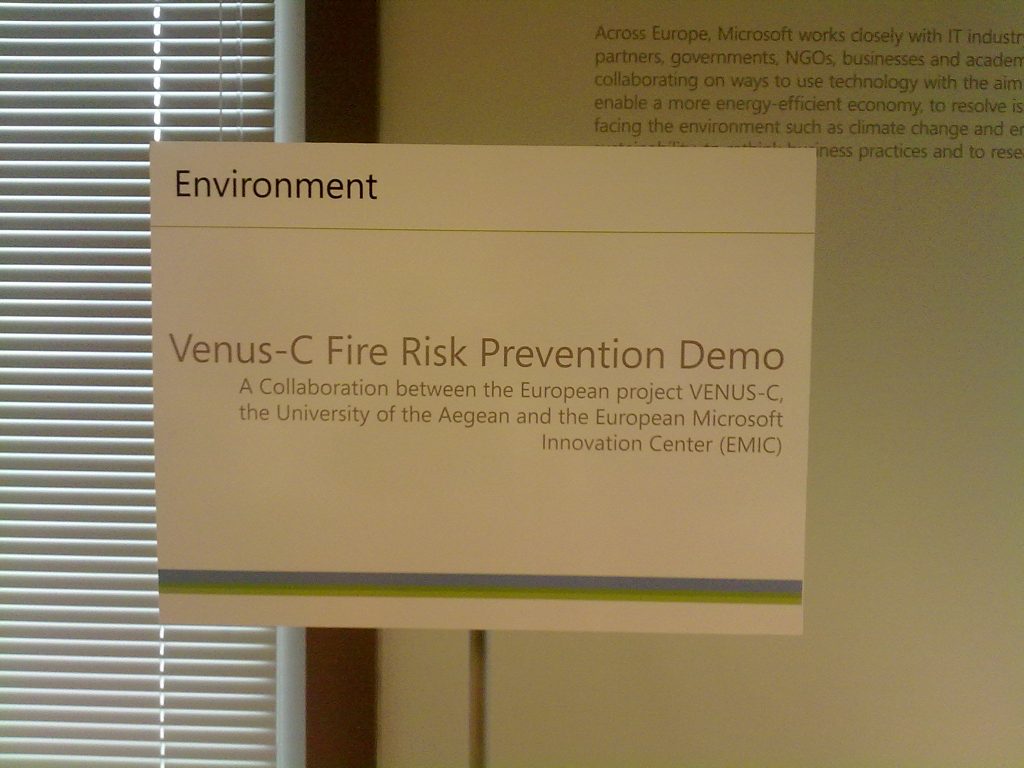
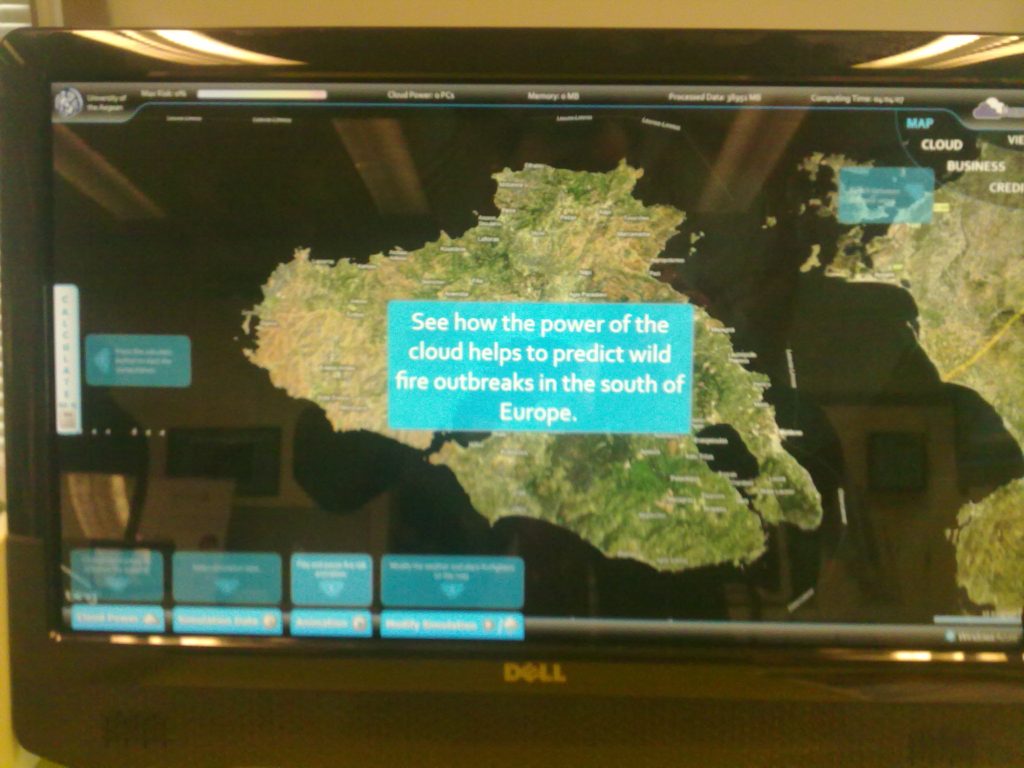

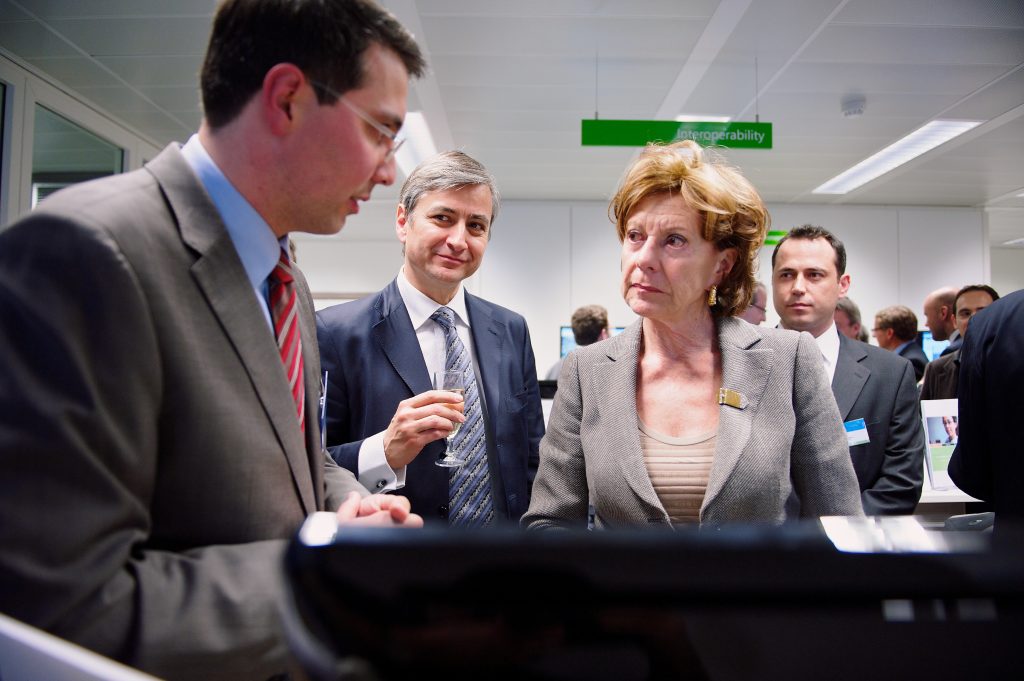
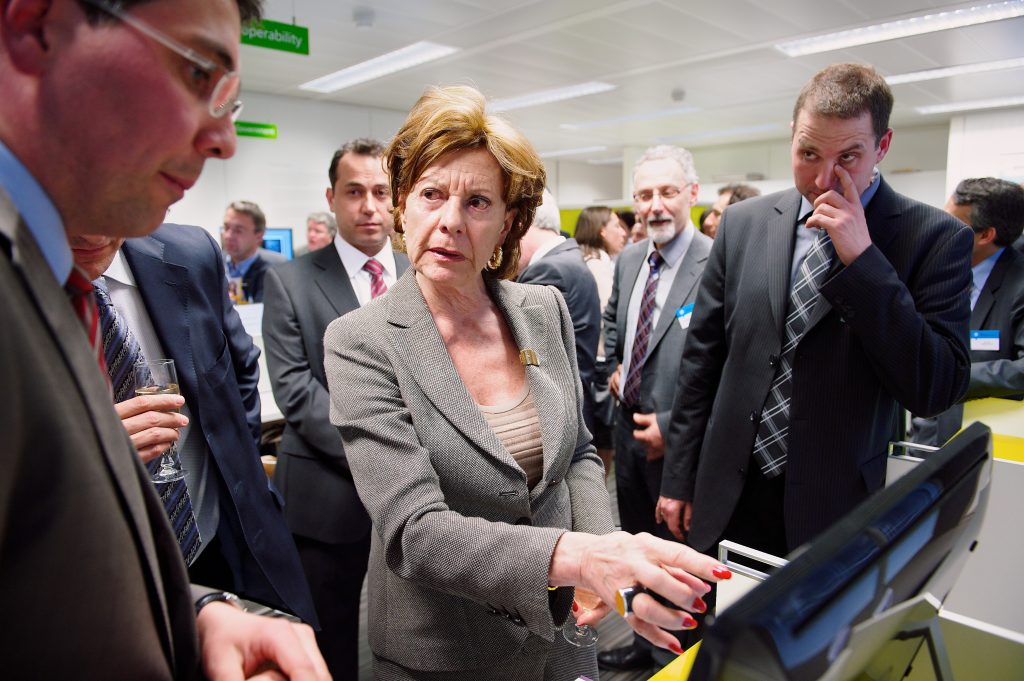
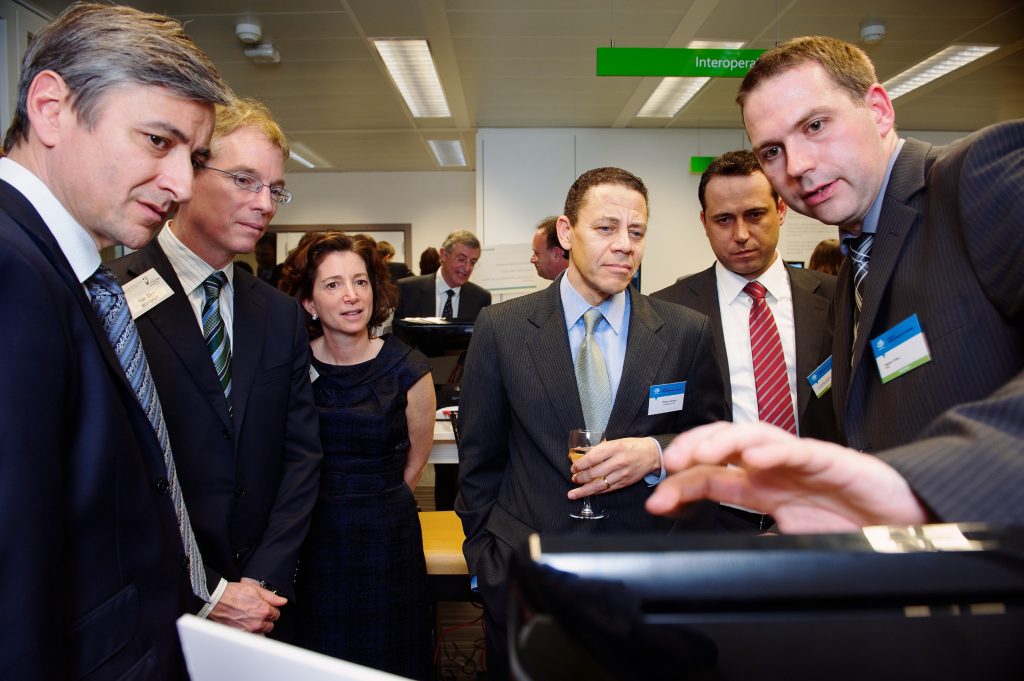
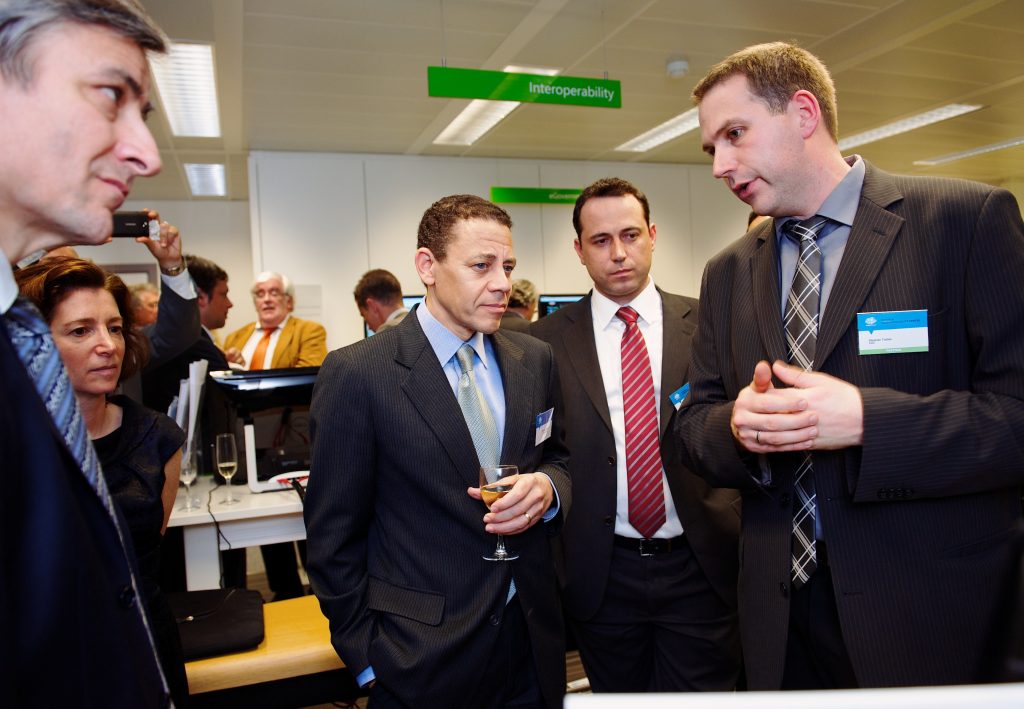
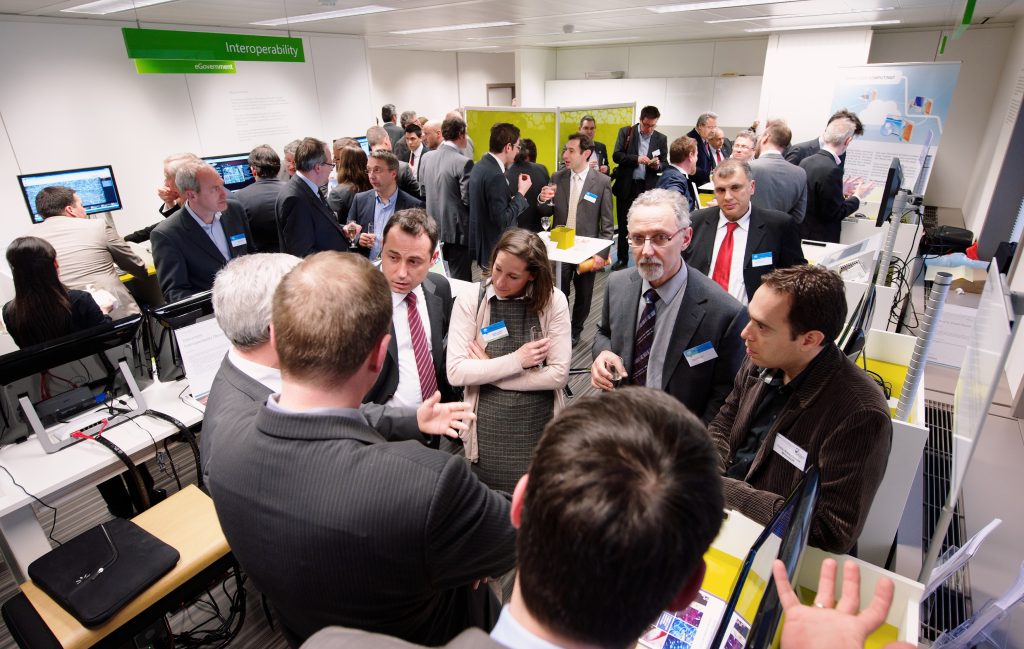
Furthermore, VENUS-C work was presented by various means. Microsoft describes how the Cloud computing opens up research to the world and especially how a Fire App Fights Wildfires with Data. Project’s story became popular to media. The International Science Grid This Week (ISGTW) later known as Science Node told our story in their articles entitled “The forecast: no fire for tomorrow” . GreenBiz also described how Big Data lets us see the forest and the trees.
At the end of the VENUS-C project, Microsoft produced a video presenting VENUS-C story…Enjoy it!
